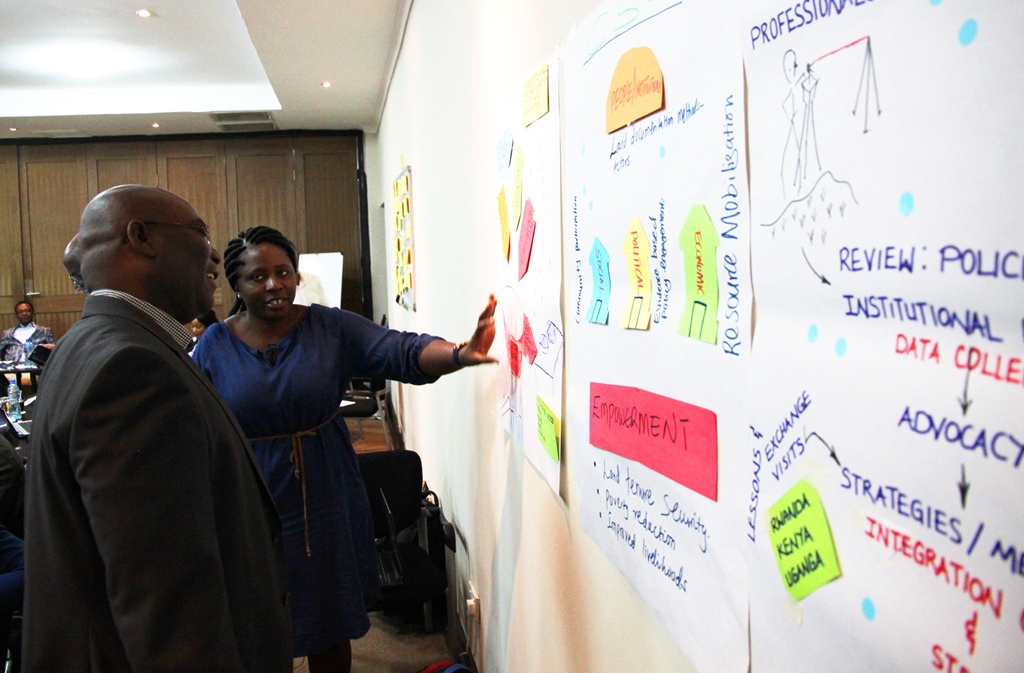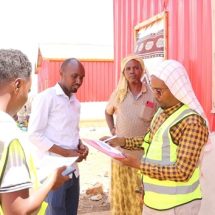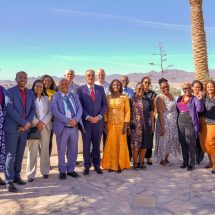Learning Exchange and Capacity Development Week | 5 – 8 June 2018 |Lusaka, Zambia
A team of thirty-two land actors from Zambia’s government ministries of Lands and Natural Resources, Gender, and Local Government; civil society organizations, local authorities, the Academia, professional bodies, grassroot organizations and International Non-Profit Organizations, gathered in Lusaka, Zambia for a Learning Exchange and Capacity Development Week on Innovative Land Tools and Approaches.
The workshop was co-organized by UN Habitat’s Zambia mission and GLTN, with a view to strengthen the capacity of partners and land actors in Zambia in the promotion and implementation of pro-poor, gender responsive and fit-for-purpose land tools and policies. Representatives from Habitat for Humanity, Huairou Commission and Slum Dwellers International were also in attendance.
In her opening remarks, the Director of Planning and Information from the Ministry of Lands and Natural Resources, Ms. Veronica Makwakwa Mwiche, thanked the organizers of the workshop while pointing out how the workshop objectives interfaced with Zambia’s overall development goals. She went on to underline the clear link between the UN Habitat and GLTN programs in Zambia and the Seventh National Development Plan (7NDP) which the Government of Zambia has formulated and is implementing.
| The purpose of the 7NDP is to achieve socio-economic and technological progress for transformation.
Considering the key developmental results of the 7NDP, the Director highlighted land issues as the common thread binding the two programs, and the finite resource on which all developmental activities take place.
During the four-day event, participants were trained on different GLTN innovative land tools and approaches including: Fit-for-Purpose Land Administration, Tenure Responsive Land Use Planning, Land Value Capture tools including Land-based Finance and Participatory and Inclusive Land Readjustment (PILaR), the Gender Evaluation Criteria, the Youth and Land Responsiveness Criteria, Participatory Enumerations, and the Social Tenure Domain Model (STDM).
Practical sessions on the STDM and Participatory Enumerations were conducted; through role playing on data collection using questionnaires, STDM software installation process, upload of the enumeration and parcel allocation data, design and production of certificates. This enabled the participants to gain hands-on skills in applying GLTN’s innovative approaches to strengthening tenure security, especially the poor and marginalized, from a gender perspective.
Participants were encouraged to further reflect on the concepts, tools and approaches relevant to their organizations as introduced in the learning sessions and how this new knowledge would help them deal with the land issues in Zambia. This was structured in an individual assignment of which they presented to each other during the four-day event. The workshop also provided Partners implementing GLTN land tools to share their own expertise, experiences and lessons learnt emerging from their projects in both rural and the urban context.
At the closing of the learning week, a land surveyor from the Ministry of Lands and Natural Resources, Mr. Njavwa Siwale, informed participants on the status of his ministry’s roll out of the National Land Titling Programme, noting the social surveying challenges in its implementation. He recognized the Social Tenure Domain Model as a tool and process that can be used to close this gap because of its ability to capture both social and spatial data.













